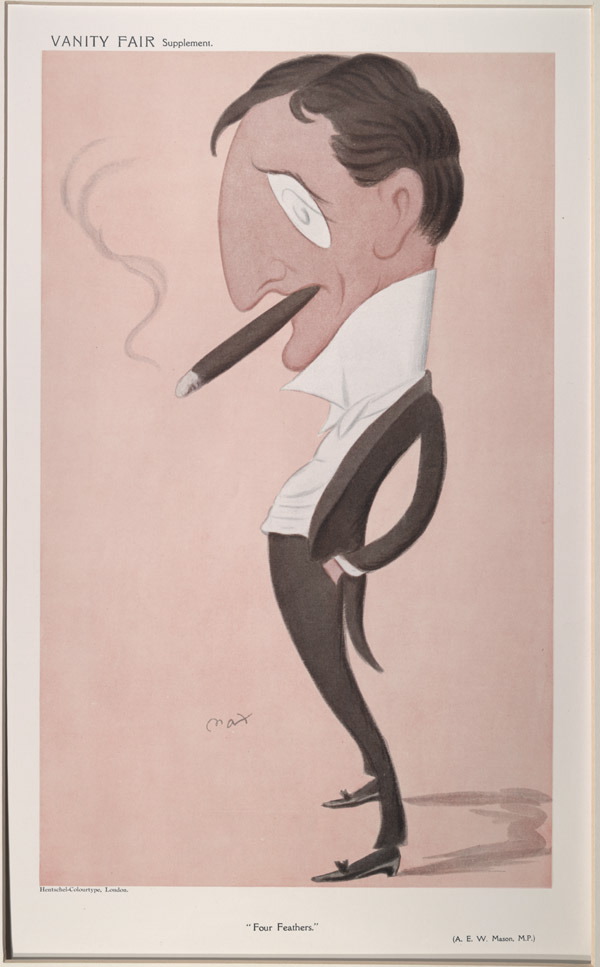By A. E. W. Mason (1865-1948).
Charles Scribner's Sons.
1914. 331 pages. $1.30
Online HERE, HERE, HERE, HERE [play version], and HERE [play version].
Filmed in 1919 [see HERE and HERE].
[SPOILERS IN REVIEW: Excerpts] Murder, as Mr. Mason's heroine commit[s] it, is hardly what you would call a crime. Looked at rightly, i.e., with a ready willingness to be guided by the author's intention, it is scarcely more than an undeserved misfortune. . . . — "Current Fiction," THE NATION (February 12, 1914)
[Full review] Mr. Mason is a past-master in the art of handling a situation so as to hold the interest tense. There are, indeed, two striking situations in this story and each holds the reader closely.
In the first a distinguished lawyer goes on the stand and "lies like a gentleman" to save the woman he loves from an impending conviction for the murder of her half-crazed, alcoholic, and brutal husband; in the second he faces the question whether he shall hold his tongue when he finds that the woman is about to marry another man. The novel is an absorbing piece of story-telling. — "Review," THE OUTLOOK (February 28, 1914)
[SPOILERS IN REVIEW: Excerpts] The Witness for the Defence, by A. E. W. Mason, offers an entirely different problem in the art of construction. Imagine the familiar, so-called triangle situation . . .
. . . Now, this sort of story is good enough sport where the cards, so to speak, are all fairly dealt. But Mr. Mason is in the position of a gambler who has kept most of the trump cards up his sleeve. . . . He does not play the game fairly. . . . — Frederic Taber Cooper, "The Weakest Spot and Some Recent Novels," THE BOOKMAN (March 1914; go to page 79, top left)
[SPOILERS IN REVIEW: Full review] Although modern writers of fiction often leave an undescribed interval of time in the middle of their novels, it must be confessed that the gap in Mr. Mason's The Witness for the Defence between the twelfth and thirteenth chapters is so wide as seriously to impair the continuity of the story.
Some explanation should surely be given of the reason why Thresk, the barrister who is "the witness for the defence," should apparently entirely wash his hands of [SPOILER]. Certainly he believed her to have [SPOILER], but although this would disincline him to marry her, it would hardly, after he had procured her [SPOILER] would have caused him to [SPOILER] without the least attempt at discovering what had [SPOILER]. Had he found out [SPOILER] at the end of the book, would have been of no avail.
Mr. Hazlewood is the best character in the story, and the abrupt contrast in his attitude between a general wish to give a second chance to criminals and a most human desire to save his son from a criminal [SPOILER] is described with considerable humour.
The heroine and the man she marries are rather more conventional figures, but the plot of the story is good, and Mr. Mason as ever exercises with great success his admirable gift of carrying his readers along with him. — THE SPECTATOR ARCHIVE (January 1914)Resource:
- Mason enjoyed much greater success with his AT THE VILLA ROSE (1910); go HERE for more.
Category: Crime/romance fiction

No comments:
Post a Comment